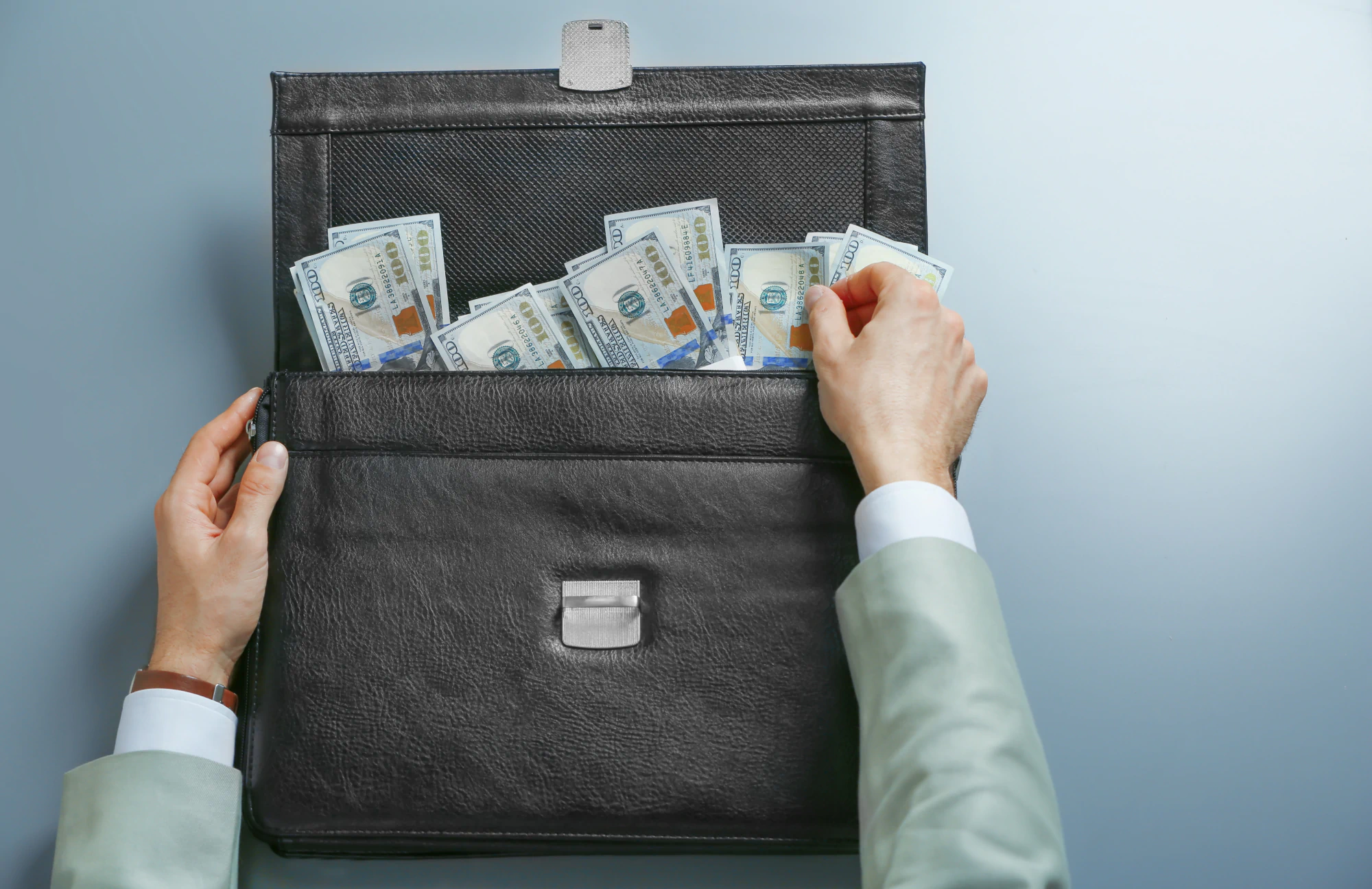Whether you’ve been accused of bank fraud or are just studying up on the subject, you are probably learning that a quick search for “What is bank fraud?” can leave you with more questions than answers. Bank fraud is a multifaceted legal issue that continually evolves alongside changes in how people and banks handle money.
The legal definition of bank fraud is rather broad because it encapsulates the many different types of bank fraud. Casting this wide net has its benefits, but the downside is that doing so has also entangled many innocent individuals and companies in unnecessary bank fraud cases.
This guide provides a general classification of fraud in banks as well as an outline of how bank frauds happen. However, if you have been accused of bank fraud, know that no amount of asking the internet “What is bank fraud?” will substitute for the representation of a legal professional.
Bank fraud and COVID-19
In response to the economic needs of Americans suffering from the fallout of the COVID-19 pandemic, Congress acted to provide over $2 trillion of relief to United States citizens. This relief came in the form of the Coronavirus Aid, Relief, and Economic Security (CARES) Act, which provided the Paycheck Protection Program (PPP) for small businesses and the Economic Impact Payments (EIPs) for individuals.
While the stimulus checks have provided many businesses and individuals with much-needed financial assistance, they also opened the door for numerous allegations of bank fraud. While some of the resultant bank fraud allegations arose due to the actions of knowingly fraudulent people, many other small business owners and individuals who were truly seeking financial assistance in good faith have also been wrongly accused of bank fraud.
Sellers Law Firm is here to help those who have received the additional blow of an unnecessary lawsuit—or criminal investigation—on top of already trying circumstances. But before we go any further, let’s break down the basics of bank fraud and the penalties you may be facing for these charges.
What is bank fraud?
Bank fraud occurs when deception, pretense, or false information is used to steal from a bank, financial institution, or a bank’s depositors. Bank fraud is defined in Title 18 of the U.S. Code (18 U.S.C. § 1344), which states that someone commits bank fraud if they “knowingly execute, or attempt to execute, a scheme or artifice to:”
- defraud a financial institution; or
- obtain any of the moneys, funds, credits, assets, securities, or other property owned by, or under the custody or control of, a financial institution, by means of false or fraudulent pretenses, representations, or promises.
Bank fraud differs from bank robbery in that the former rarely involves violence or threats of violence. Cases involving bank fraud are investigated by the U.S. Secret Service Agency.
It’s important to note that bank fraud doesn’t just apply to the banks we think of when we’re talking about “going to the bank.” Specifically, the “financial institutions” mentioned above also include credit unions and other banks that are federally insured, such as:
- Mortgage lenders
- Federal Reserve banks
- The Federal Deposit Insurance Corporation (FDIC)
- Other financial institutions that accept deposits/assets
Also worthy of note is that not all financial fraud is technically bank fraud. For example, money laundering (giving ill-gotten gains the appearance of being earned legitimately) and embezzlement of funds from a company that is not a bank are financial fraud, but not always bank fraud.
Types of banking frauds
When you ask a question like “What is bank fraud?” it is almost impossible to provide a truly succinct answer. Part of the reason is because the definition of bank fraud is so broad, and part of the reason is that, as technology advances, the list of types of bank fraud grows longer.
1. Check fraud and credit card fraud
Some of the most common types of fraud involve checks and credit cards. Examples of bank fraud involving checks and credit cards include:
- Forgery: Forging a person’s signature to deposit or cash a check, or changing information on the check, such as adding a zero or set of zeros to the original figure stated (i.e. making $10 into $100), or changing an account number on a check, etc.
- Theft: Stealing checks, then opening fake bank accounts to deposit said checks or otherwise commit identity theft. Stealing credit cards or account data and then using that data to go on a spending spree.
- Check kiting: Making a payment with a check even though you know that your bank account doesn’t have sufficient funds to cover the amount owed. Check kiting takes advantage of the “float” system used by banks, which involves crediting a check amount to an account even though the bank does not technically have the money from the check-writer’s bank.
- Money laundering: Money laundering — giving ill-gotten gains the appearance of being earned legitimately — does not involve money that “belongs” to the bank or that the bank is “entitled to.” But because money laundering involves lying to the bank about the origin of the money, money laundering charges are often brought alongside bank fraud charges.
Many of these types of bank fraud have subtypes within subtypes. For example, there is a type of check kiting that involves “booster checks.” Directly after a booster check is deposited, the float money issued by the bank is used to make a payment towards a (typically maxed-out) credit card. While the credit card is no longer maxed-out, the person goes on the spending spree. By the time a bank realizes the original booster check was no good, it’s too late.
2. Internet bank fraud, phishing, and bank impersonation
Internet bank fraud often involves tricking people into depositing money or submitting a payment to a fake bank. For example, someone may either impersonate a bank or create a fake but convincing-looking bank company, website, and paperwork, and/or send out emails posing as a bank and asking you to sign up with them or make a payment. (The latter process is a type of phishing.)
3. Accounting fraud and fraudulent loans
Banks sometimes make loans to individuals or businesses with the understanding that whomever obtains the loan will pay it back with interest. In order to gain one of these loans, someone may fake their identity or provide false information about a company to hide current financial issues or their previous financial history, all with the aim of making them appear like a safe investment. Another type of loan fraud can occur when a person or business secures a loan from a bank even though they intend to file bankruptcy directly afterwards.
Accounting fraud cases such as Enron or WorldCom are some of the most prominently featured bank fraud cases in the news.
What happens if you commit bank fraud? Bank fraud penalties.
Is bank fraud a felony or misdemeanor? And are all types of bank fraud a federal crime? The answers to these questions depend on the laws of the state in which the alleged crime occurred.
In Texas law, instances of bank fraud that fall under the category of forgery may be tried in state court and, depending on the particulars of the case, can lead to felony or misdemeanor charges. Specifically, bank fraud is considered to be a:
- Class A misdemeanor if the item(s) involved in the forgery are not mentioned in the below felony offenses. Penalties include a fine of up to $4,000 and up to 1 year of imprisonment.
- State jail felony if the item(s) involved in the forgery include a check, debit/credit card, will, mortgage, contract, or release. Penalties include a fine of up to $10,000 and spending between 18 month – 2 years imprisonment.
- Third degree felony if the item(s) involved was (physical, paper) money, stocks, bonds, or an item involving the state or national government. Penalties include a fine of up to $10,000 and 2 -10 years imprisonment.
The classification of a crime can be bumped up a penalty level if any of the fraudulent actions were committed against an elderly person.
Meanwhile, a bank fraud conviction under the federal statute can result in a fine of up to 1 million dollars and a prison sentence of up to 30 years. Again, the severity of the penalties will depend on the amount of money involved, the type of fraud used, and other relevant circumstances.
Bank fraud defenses
The main thing that must be proven against a bank fraud defendant is that they knowingly and intentionally committed the actions that led to fraud. It can be difficult to prove that someone did or didn’t know something, so you want to find a bank fraud lawyer who has significant experience building strong bank fraud defenses. For more information on bank fraud defenses, please see our bank fraud lawyer page.
Accused of bank fraud in Dallas or Fort Worth?
If you’ve been accused of fraud in the DFW area, you need a federal defense attorney in Dallas/Fort Worth. The attorneys at Sellers Law Firm are accomplished Dallas white collar crime defense lawyers with years of experience to our name.
At Sellers Law Firm, we recognize that when someone has been accused of bank fraud, so much is on the line: one’s reputation, one’s business, and one’s financial security. Our bank fraud attorneys at Westfall are proud to offer our client top-notch, aggressive Dallas/Fort Worth fraud defense.
Don’t take bank fraud allegations lightly or try to cut corners by hiring a cheap lawyer. Remember: you only get one shot at this. To request a free consultation, call us at 817-928-4222 or contact us online today.
More Helpful Articles By Sellers Law Firm Attorneys:





